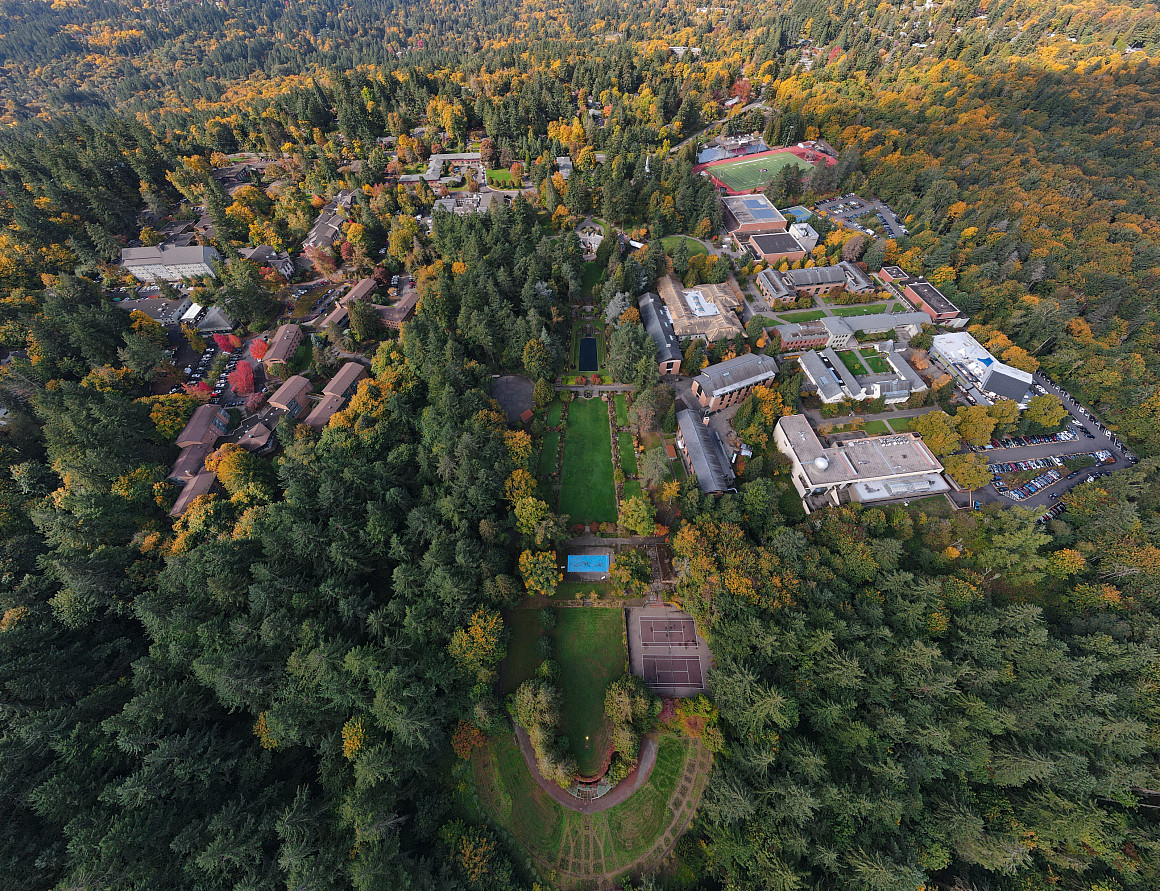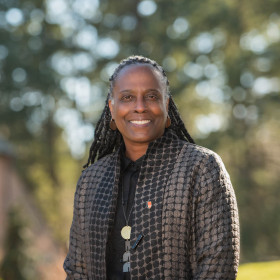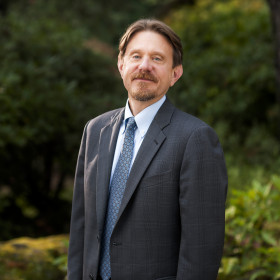Lewis & Clark Welcomes Outstanding and Diverse First-Year Classes
This fall, Lewis & Clark is welcoming first-year classes across its three colleges, totaling more than 1,000 students, including nearly 950 degree-seeking students.

This fall, Lewis & Clark is welcoming first-year classes across its three colleges, totaling more than 1,000 students, including nearly 950 degree-seeking students. A class of approximately 560 students will start their undergraduate education at the College of Arts & Sciences. About 220 students will begin pursuit of their master’s, EdS, or EdD at Lewis & Clark Graduate School of Education and Counseling, with approximately 70 more starting endorsement or certificate programs. And around 160 first-year students (also called “1Ls”) will start at Lewis & Clark Law School.

The institution’s leadership continues to evolve their approach to admissions with an eye toward removing barriers and increasing access. This includes taking steps to streamline the application process to make it possible for any qualified student to pursue their education and thrive at Lewis & Clark.
The College of Arts & Sciences: Removing Barriers
Waiving application fees from all applicants is just one of the ways that the undergraduate college at Lewis & Clark has removed barriers to access. The college was also an early adopter of test-optional policies. Standardized testing has been optional at L&C since 1991. Currently, about 75 percent of applicants choose not to submit test scores.
Of the incoming undergraduate class, 33 percent identify as domestic students of color, which is up from 28 percent last year. Of the incoming class, 7.4 percent are degree-seeking international students, growing from four percent last year.

In addition to robust recruitment efforts, the undergraduate college at Lewis & Clark works with a number of nonprofit and community-based organizations to enhance accessibility, including a highly successful partnership with the Posse Foundation. The Posse Foundation recruits and supports students who show extraordinary leadership potential, providing mentorship and resources to prepare them for lifelong success. L&C will welcome its third cohort of Posse scholars from Washington, D.C., this year. The campus will also welcome its inaugural cohort from the foundation’s newest recruiting location: Puerto Rico. With the addition of Puerto Rico, Lewis & Clark is now the first institution in the Pacific Northwest to serve as a dual-program institution with Posse.
For many families, a Lewis & Clark education has become a proud family tradition. While legacy information has been included among the many data points the college collects, legacy admissions has not been part of the college’s admissions approach. To strengthen its commitment to access even further, the admission office will no longer have the ability to access legacy-related data until the decision-making process is complete.
The Graduate School: Committed to Accessibility
Accessibility and inclusivity remain important priorities at Lewis & Clark Graduate School of Education and Counseling.
In addition to recruitment efforts that include robust outreach to historically marginalized students, the graduate school has made several updates to its admissions policies. A few years ago, the graduate school removed the GRE and all other standardized tests from its admissions requirements. The graduate school also accepts unofficial academic transcripts for admission and even allows students to begin their programs before submitting official transcripts. This gives students more time to request and pay any transcript fees required by their prior institutions. Last year, the graduate school adjusted its tuition deposit to be more accessible to most students.
Of this year’s incoming class, 25 percent identify as BIPOC (Black, Indigenous, People of Color), and 26 percent are first-generation students. Nearly 30 percent of the incoming class are from outside of Oregon. The graduate school also offers two new endowed scholarships based on financial need: one for students in the Professional Mental Health Counseling Program and one for an Art Therapy student.

“We are incredibly proud to have been recognized by the state as a steward of these funds, which is a reflection of our commitment to graduating mental health professionals from a variety of backgrounds,” says Scott Fletcher, dean of the graduate school and professor of education.
The Law School: Admissions Policies That Promote Access
At Lewis & Clark Law School, each applicant is given a holistic review by admission committees composed of faculty and students elected to these roles. The law school is among only a few schools of its type that offer optional interviews to all applicants.
The incoming class of 1Ls come from 28 states and provinces and 88 different undergraduate institutions, with more than 50 unique undergrad majors represented. Our average law student’s age is 27, meaning many of our students are “nontraditional,” entering law school after their first or even second career. The law school also offers a part-time program, including evening courses, for students balancing school with work, family, or other responsibilities.

“We are proud to offer several programs to help students who are first-generation or come from historically underrepresented backgrounds, such as the AEP program and the Summer Institute, as well as a very robust mentoring program to help incoming students,” said Jennifer Johnson, Dean and Erskine Wood Sr. Professor of Law.
More Stories

Experiential Learning
Health + Humanities Internships = Impact
The Center for Community and Global Health offers funding for health and humanities internships with Portland-area partners. Whether over the summer or during the school year, L&C students benefit from paid internships that turn career exploration into action.

Community Connections
“Art at the Center”
The Lewis & Clark Art Therapy program has released a documentary film exploring its expansion into the Community Counseling Center and discussing the benefits that the new space has to offer to both graduate students and community members alike.

Dialogue Across Difference
A Forum for Dialogue and Discussion on Palestine and Israel
The Middle East and North African Studies program offered a new course this fall to facilitate discussion and collective learning around the ongoing Israeli-Palestinian conflict.

Climate Justice
Uncovering the Hidden Toll of Natural Disasters
Rachel Young BA ’11 recently published groundbreaking research in the journal Nature on the long-term health impact of tropical cyclones. The article is part of her growing scholarship on the quantifiable social effects of climate change and natural hazards.
